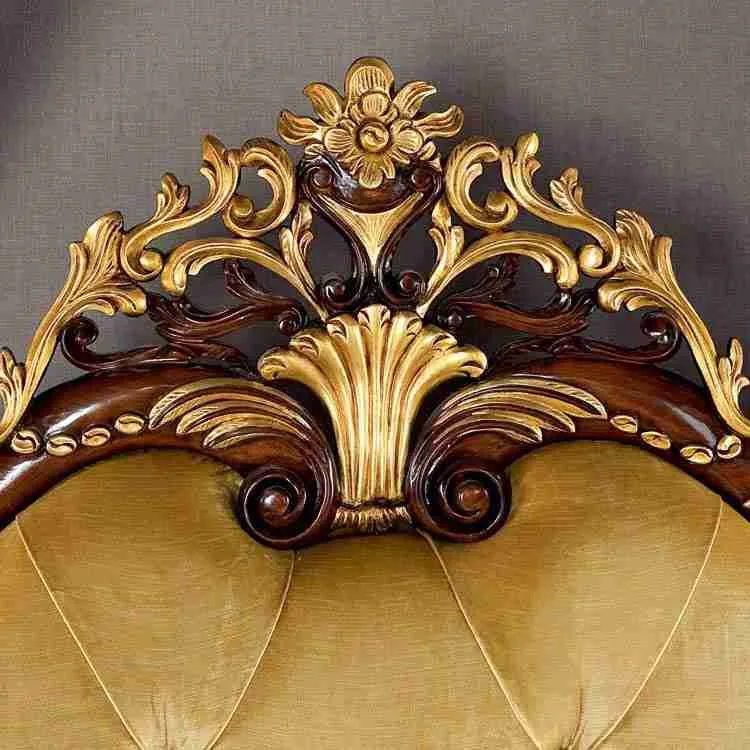Introduction
Baroque furniture, with its rich heritage and exquisite craftsmanship, is a celebration of grandeur and artistry. Renowned for its opulent designs and intricate details, it offers a unique opportunity for personalization. In a modern world that values individuality, customizing Baroque furniture transforms these timeless pieces into personal masterpieces, blending historical charm with contemporary flair.
Why Baroque Furniture is a Timeless Choice

A Legacy of Elegance
Baroque furniture originated in the 17th century, symbolizing opulence and power. Its ornate carvings, bold proportions, and luxurious materials make it a lasting icon of sophistication. Whether placed in a classic or modern interior, these pieces evoke a sense of timeless beauty.
Resilient to Changing Trends
While design trends come and go, Baroque furniture remains steadfast. Its adaptability to different styles and its ability to command attention make it a perennial favorite for those who value both history and innovation.
The Growing Trend of Personalization in Home Design
Today, homeowners seek spaces that reflect their unique personalities. Customization allows individuals to tailor furniture to their specific tastes and needs, turning ordinary items into extraordinary expressions of self. Baroque furniture, with its intricate designs and versatile forms, serves as the perfect canvas for personalization.
Understanding the Baroque Style

Key Characteristics of Baroque Furniture
Ornate Carvings: Floral motifs, scrolls, and cherubs bring a sense of drama.
Luxurious Materials: Woods like walnut and mahogany paired with gilded accents.
Rich Color Palette: Deep reds, golds, and emerald greens dominate the aesthetic.
What Makes Baroque Design Iconic
Baroque design is synonymous with theatricality and opulence. Its bold proportions and meticulous attention to detail make every piece a statement of artistry and luxury. These qualities ensure its continued relevance in design.
The Importance of Personalization

Enhancing the Beauty of Baroque Furniture
Personalization breathes new life into Baroque furniture, allowing it to reflect contemporary sensibilities while retaining its historical charm. This fusion creates unique, conversation-worthy pieces.
Tailoring Furniture to Your Space
Customization ensures that each piece fits seamlessly into your home. By choosing the right dimensions, finishes, and features, you can make your furniture both functional and aesthetically pleasing.
Choosing the Right Baroque Pieces for Customization
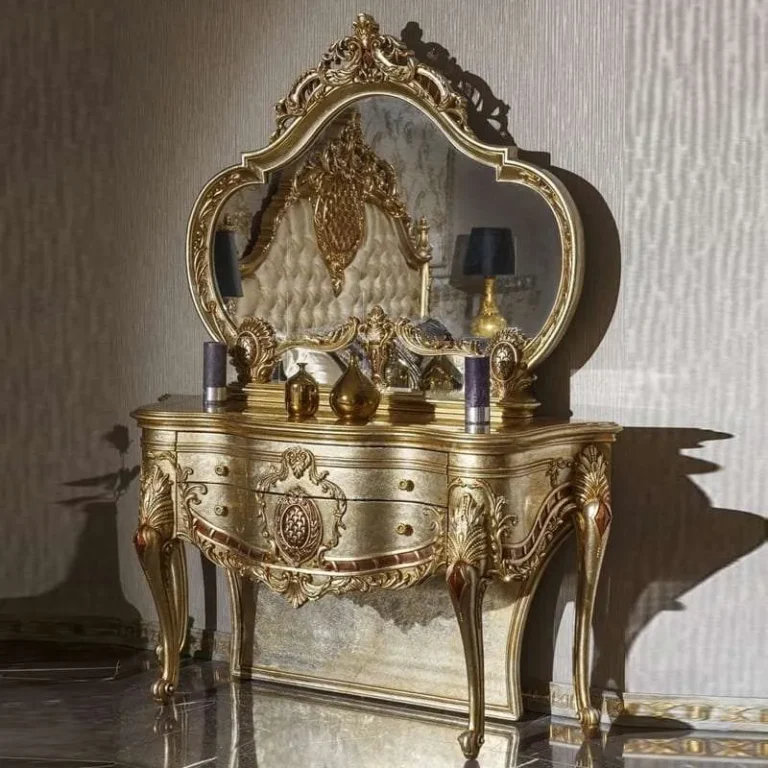
Identifying Pieces with Potential
Look for furniture with solid construction and classic shapes. Pieces with intricate carvings or clean surfaces offer versatile starting points for customization.
Popular Baroque Furniture for Personalization
Armoires: Elevating Storage Solutions
Customizing an armoire can transform it into a functional and decorative centerpiece. Adjust shelving, add mirrors, or choose a bold finish to elevate its appeal.
Dining Tables: Timeless Elegance
Personalize dining tables by selecting unique shapes, sizes, or finishes. Add carved details or inlaid designs to make it a centerpiece for gatherings.
Chairs and Sofas: Combining Comfort and Beauty
Reupholstering chairs and sofas in luxurious fabrics such as velvet or silk enhances both comfort and style. Modify legs or armrests to suit modern tastes.
Beds: Creating Regal Retreats
A customized headboard with intricate carvings or tufted upholstery can make your bed a stunning focal point. Experiment with materials and finishes to match your decor.
Cabinets and Sideboards: Functional Art
Add personalized hardware, intricate inlays, or painted accents to cabinets and sideboards. Tailor the interior layout to meet your storage needs.
Defining Your Personal Style

Classic Baroque vs. Modern Interpretations
Decide whether you prefer the authenticity of classic Baroque or a modern take that incorporates minimalist elements. Each approach offers unique opportunities for expression.
Crafting a Cohesive Color Scheme
Choose colors that harmonize with your space. Traditional deep hues or lighter, contemporary tones can both enhance the beauty of Baroque furniture.
Patterns and Textures for Visual Interest
Introduce patterns like damask or textures like brocade for upholstery. Combine them with smooth, polished wood surfaces for a dynamic look.
Material Selection: A Key to Success

Selecting Premium Woods
Opt for durable and aesthetically pleasing woods like oak or cherry. Their natural beauty can be highlighted with stains or finishes.
Choosing Luxurious Fabrics
Velvet, silk, and high-thread-count linens exude luxury. Pair these materials with decorative stitching or tufting for added elegance.
Experimenting with Finishes
Gilded, painted, or distressed finishes can dramatically alter the appearance of a piece, allowing you to match it perfectly to your interior style.
Blending Modern Elements into Baroque Design
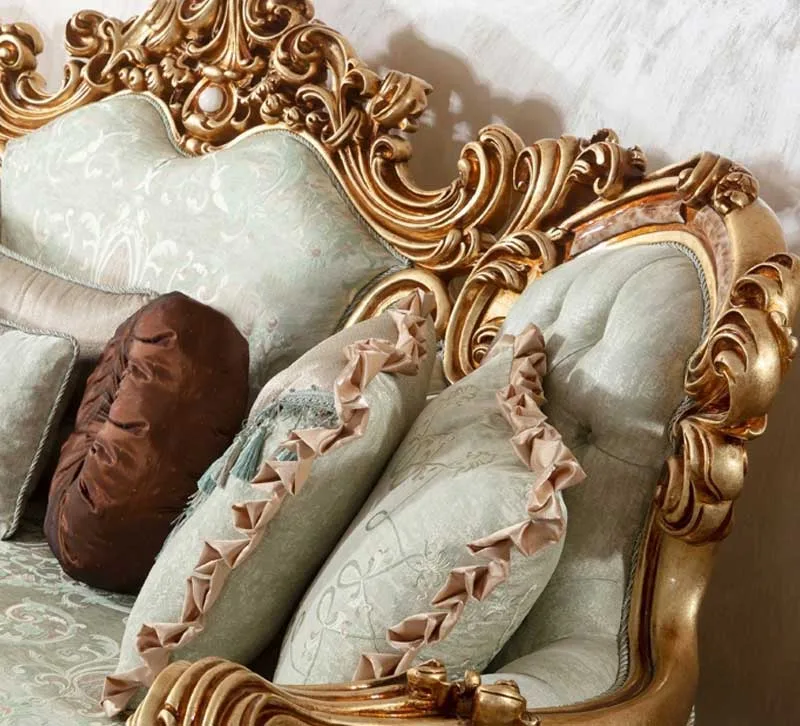
Achieving Balance Between Old and New
Integrate sleek, modern elements such as glass or metal accents into Baroque designs. This contrast creates a striking and harmonious fusion.
Minimalism Meets Maximalism
Pair ornate furniture with minimalist decor to let the Baroque elements shine. This approach highlights the beauty of detailed craftsmanship in clean spaces.
Customizing the Details

Hardware Selection
Choose knobs, pulls, or hinges that complement your design vision. Whether ornate or understated, hardware can be the finishing touch.
Adding Carvings and Inlays
Personalized carvings or inlays can make a piece uniquely yours. Consider motifs that reflect your heritage or personal interests.
Upholstery Techniques
Experiment with techniques like tufting or pleating to add texture and depth. These details enhance both aesthetics and comfort.
Adding Functional Personalization
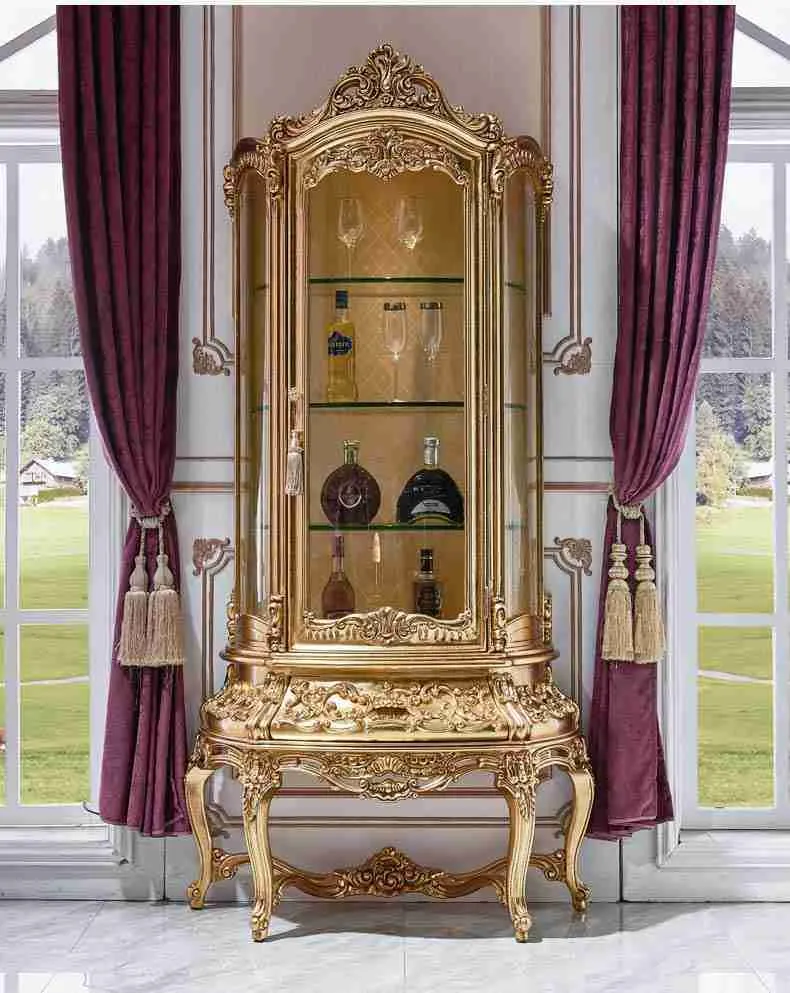
Maximizing Storage
Incorporate hidden compartments or custom shelving into your furniture for added practicality without sacrificing style.
Multi-Purpose Designs
Explore dual-function pieces like expandable tables or storage ottomans to optimize space in smaller rooms.
Working with Professionals and DIY Projects
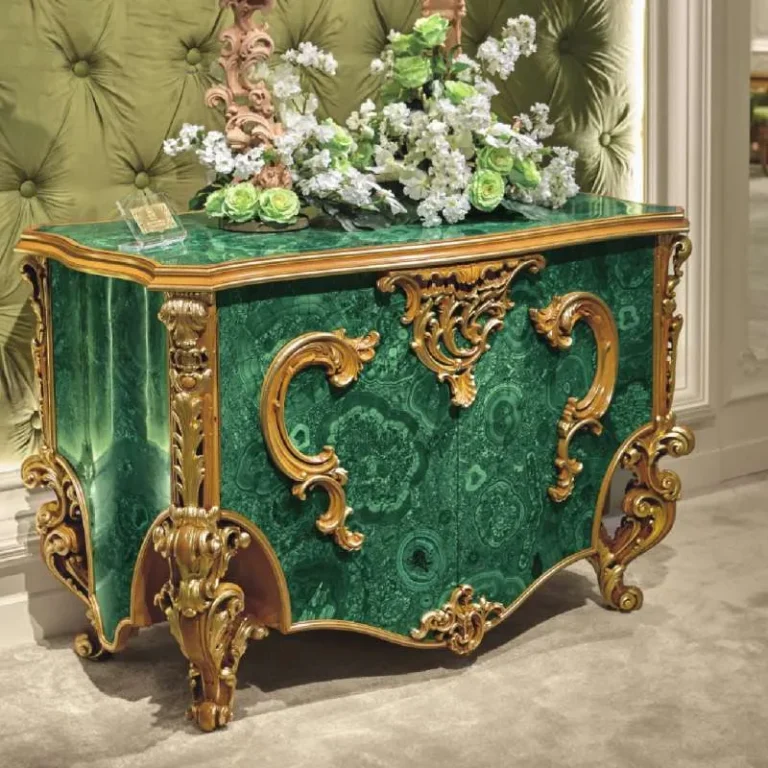
Collaborating with Craftsmen
Hire skilled artisans for intricate customizations. Clear communication and visual references ensure your vision is realized.
DIY Customization Tips
For smaller projects, invest in quality tools and learn basic techniques. Simple tasks like painting or reupholstering can make a big impact.
Budgeting and Sustainability
Managing Costs
Set a realistic budget by prioritizing key customizations. Source materials locally to save on costs.
Eco-Friendly Practices
Repurpose antique furniture or use sustainably sourced materials to reduce environmental impact while creating stunning pieces.
Maintenance and Preservation
Daily Care Tips
Clean surfaces with gentle products to protect finishes. Regularly vacuum upholstered pieces to maintain their appearance.
Long-Term Preservation
Apply protective coatings and avoid direct sunlight to prevent fading or damage. Proper care ensures your pieces last for generations.
Styling for Different Rooms
Position Baroque furniture as statement pieces. Pair them with complementary decor to create a cohesive look in any space.
Creating Visual Impact
Use dramatic lighting or bold backdrops to highlight your customized pieces. Let their artistry shine as the focal point of your room.
Conclusion
Personalizing Baroque furniture is a rewarding journey that marries historical elegance with modern creativity. Each customized piece becomes a unique reflection of your style and personality, transforming your home into a haven of beauty and individuality. Begin your customization adventure today and bring your vision to life.
